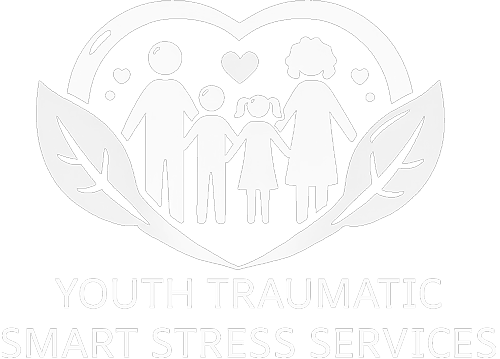LEVEL OF CARELEVEL OF CARE
Levels Of Care
Unlike conventional models that primarily assess trauma and PTSD symptoms, the GTC Model takes a holistic approach by evaluating six key aspects of a young person’s mental health and overall functioning:
1.PTSD Symptoms – Understanding the presence and severity of traumatic stress symptoms.
2.Bereavement Symptoms – Recognizing the presence and severity of maladaptive bereavement.
3.Functional Level Impairment – Measuring the impact of traumatic stress/maladaptive bereavement on activities of daily life with self, peers, family, school, and relationships.
4.Self-Regulation Flexibility – Assessing the adaptive coping skills, positive biopsychosocial characteristics and adaptabilities in response to stress.
5.Psychosocial Characteristics – Examining the impact of optimal social interactions and high-quality connectedness in bouncing back from traumatic stress.
6.Socioeconomic Repertoire – Measuring individuals’ access to and limitations to care, a system in place for care, and thriving in the community in youth with traumatic stress.
Through this comprehensive assessment, we provide a personalized roadmap for recovery, ensuring that youth and their families receive the care they need based on their specific challenges and strengths. Our model is designed to not only treat symptoms but also prevent them from developing with a focus on prevention and preparedness. We emphasize social and community support as well as building resilience and long-term well-being to help youth and families navigate the challenges of trauma, stress, grief and adversity. The treatment approach will be stratified to one of three treatment modalities (restorative, resilient, or protective) based on the child’s trauma symptom severity and presence of functional impairment.
Protective approach. Adolescents with no or minimal symptoms and little/no functional impairment and preserved self-regulation flexibility will receive a brief web-based grief-enhanced trauma-informed psychoeducation to enhance strength based coping skills and preparedness for possible future traumatic stress disorder.
Resilient approach. Adolescents with moderate to severe symptoms with low to moderate suicidality, impaired social-regulation flexibility will be referred to OVMC-LAC trauma-specific evidence-based assessment and treatment. Depending on the severity of symptoms, functional impairment, and family preferences, evidence-based interventions inclusive of selected modules of TGCTA or RFPP will be provided.
Restorative approach. Adolescents with significant symptoms and high suicidality risk, and impaired self-regulation flexibility will be referred to the OVMC-LAC psychiatry emergency room for FISP or RFPP-S.









